L’Oréal and educational agency UNESCO have announced the recipients of this year’s L’Oréal-UNESCO UK and Ireland For Women in Science Rising Talent fellowships.
The programme, which is also supported by the Royal Society, recognises a fellow in five categories: engineering, life sciences, mathematics and computer science, physical sciences and sustainable development.
So, who are this year’s grant winners and what is the focus of their research?
In their own words, here are 2022’s pioneering early careers women scientists:
Life Sciences: Dr Myriam Haltalli (University of Cambridge)
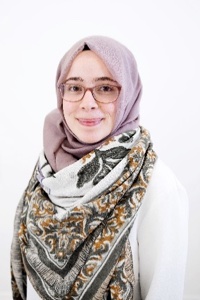
Dr Myriam Haltalli’s research intends to investigate how the blood system is modified by infection at a molecular level and whether this results in ‘scars’ that remain, even after recovery and compromise health later in life.
“The Covid-19 pandemic highlighted how infectious disease impacts society on a global scale.
“It is cells from the blood and immune systems that ran the frontline throughout the response to infection. However, little is known about how infectious challenges often occurring multiple times during the life of an otherwise healthy person affect these cells in the long term.
“My research aims to use novel technologies to gain an insight into whether cellular identity and cell fate decisions are altered upon infection, and if the molecular memory of the scars is maintained even when cured. Using a model of influenza, I want to challenge blood cells and analyse them upon infection and after recovery, at both RNA and epigenetic levels. This will allow the identification of genetic targets that can be manipulated in cells to dampen the long-term effects of infection, and will have important implications for designing future therapeutic strategies.”
Engineering: Dr Martina Cihova (Imperial College London)
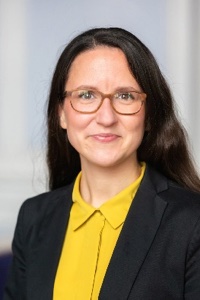
Dr Martina Cihova’s research looks to improve the way medical equipment interacts with human tissue and give a fundamental understanding into the materials’ durability with the aim to maximise the equipment’s functionality and ultimately improve patient care.
“Medical materials have shaped modern health care and quality of life. Prerequisite for the success of any biomaterial is to behave in a safe and highly predictable way once you place them into the complex environment of the human body.
“In my research, I studied original and highly-dynamic attraction between materials and biology, using advanced analytical microscopy techniques, which allow us to study the material-cell interface at a size and level of detail as never before.
“The insights we are obtaining are the foundation of our fundamental understanding of the material: its functionality, durability and ultimately its potential to guide health decision responses. With this research will pave the way for the development of improved biomaterials to maximise performance and patient safety.”
Mathematics and Computer Science: Dr Bernadette Stolz (University of Oxford)
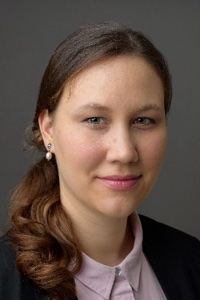
Dr Bernadette Stolz’s research applies mathematical methods that study 'shape' in data to show the complexities in cancerous tissue which could help with treatment predictions and scheduling.
“Over the past decades, the quality and quantity of biomedical data have drastically increased. However, the methods currently use to analyse such data do not take full advantage of the complex structural information available.
“I developed techniques in topological data analysis to quantify shape in biomedical data, in particular images arising from cancer research.
“From such images, we can, for example, reconstruct a detailed blood vessel network of a tumour and use topological data analysis to quantify multi-scale changes in its shape during disease progression and treatment.
“My research paves the way for shape-based biomarkers for disease phenotyping, patient stratification, treatment scheduling and treatment prediction.”
Physical Sciences: Dr Rachel Montgomery (University of Glasgow)
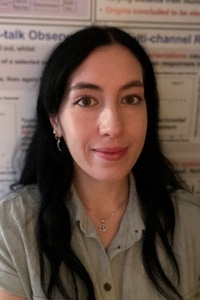
Dr Rachel Montgomery is a nuclear physicist. Her research aims to further our understanding of the sub-atomic particles which bind together to form nuclei. She is developing novel instruments to measure these particles and is particularly interested in transferring these technologies to the field of nuclear medicine.
“As a nuclear physicist, I'm using advanced electronics to study the nature of subatomic particles called protons and neutrons. In my experiments, electrons are accelerated to very high energies and scattered from those particles. I'm developing novel instruments to measure what happens in those experiments.
“We still strive to fully understand kind of protons and neutrons are constructed, and how they bind together to form atomic nuclei. Nuclei are the building blocks of all matter in our visible universe, including ourselves. I hope my research can offer new insights into these exciting topics, and I’m interested in how what we learn can be applied elsewhere, like nuclear medicine.”
Sustainable Development: Dr Christina Faust (University of Glasgow) & Dr Jenny Zhang (University of Cambridge)
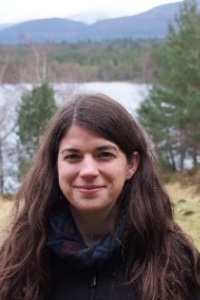
Dr Christina Faust is a landscape disease ecologist and her research aims to mitigate the emergence of zoonotic diseases (animal to human diseases such as Covid-19) in human populations. Her research proposal will identify mechanisms and key environmental features that minimise rodent viral zoonoses in restored forests.
“The majority of emerging pathogens in humans are zoonotic, meaning they come from wildlife or domestic animals. Environmental change is a key driver in the zoonotic emergence. Lineage change, such as deforestation or reforestation, can actually increase contacts between humans and wildlife, which can then lead to local disease outbreaks or even pandemics.
“In the coming decades international commitments into plant billions of trees around the globe in order to increase carbon capture, but also benefit biodiversity. My research focuses on identifying reforestation strategies that can achieve these goals while also minimising zoonotic risks in reducing human communities.”
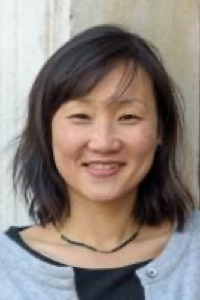
Dr Jenny Zhang is using plants to create energy through photosynthesis. Her research proposal focuses on building a platform that will accelerate the usage of successful biohybrid energy conversion products.
“I’m trying to rethink the way that we're generating renewable energy using abundant and natural resources. So, for example, photosynthetic organisms like plants and cyanobacteria, they contain a wealth of machineries that can convert water and CO2 from air into complex molecules using sunlight.
“So, what I would like to do is to tap into this process, and ultimately to rewire it so that we can use photosynthesis to generate products that we would like, so for example, renewable electricity and fuels to help society.
“And my approach is different from classical approaches because it uses modern materials technologies, and it combines it with the strengths of biology to come up with more sustainable bio-hybrid approaches to energy conversion.”
Launched in 2007, this year, the L’Oréal-UNESCO UK and Ireland For Women in Science programme presented six awards of £15,000 to outstanding female postdoctoral researchers.
The grants are designed to provide practical help for the winners to continue in their chosen fields.
For example, winners may choose to spend their fellowship on purchasing scientific equipment or paying for childcare costs, or whatever they may need to continue their research.
More than 3,000 women from 117 countries have been recognised for their research and received funding to further their studies since the global programme was founded in 1998.



